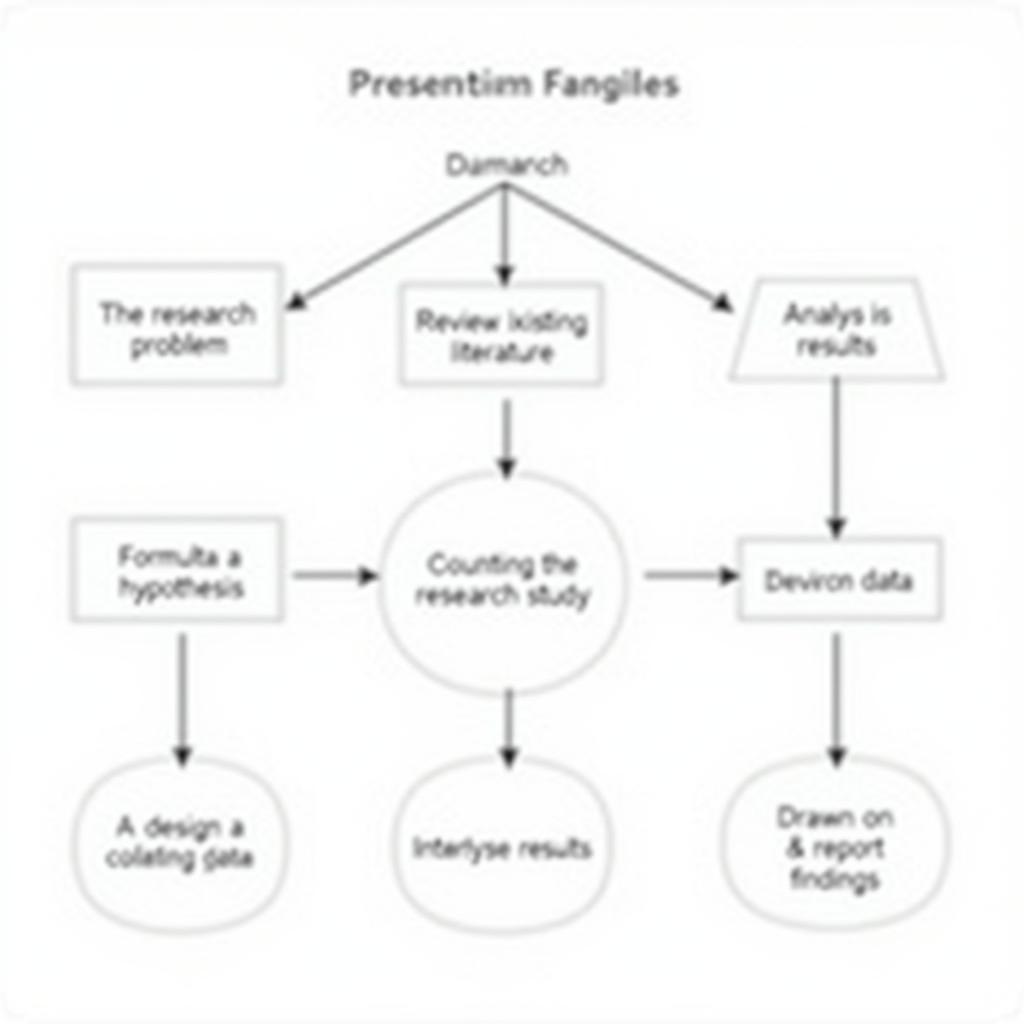Research and evaluation are two intertwined processes crucial for gaining knowledge and improving practices. They provide systematic ways to explore questions, gather evidence, and draw meaningful conclusions. Understanding what research and evaluation are, and how they differ, is essential for anyone seeking to make informed decisions, whether in business, education, or even paranormal investigations. See our guide on research and evaluation methods.
Understanding Research
Research is a systematic investigation designed to discover new knowledge or validate existing theories. It involves formulating a research question, collecting data, analyzing that data, and drawing conclusions based on the evidence gathered. Research can take many forms, from experimental studies in controlled laboratory settings to observational studies in the field. For example, in paranormal research, we might investigate a reported haunting by collecting eyewitness accounts, analyzing environmental factors, and attempting to capture evidence through recordings or other means.
Research aims to expand our understanding of the world. It’s about exploring the unknown and answering questions through a rigorous and structured process. The goals of research are typically to describe, explain, predict, or control phenomena.
Types of Research
There are various types of research, each with its own strengths and limitations. Some common types include:
- Basic research: Expands fundamental knowledge without immediate practical application. Think of it as exploring the “why” behind phenomena.
- Applied research: Seeks to solve specific, practical problems. This is often focused on the “how” of applying knowledge.
- Qualitative research: Explores complex social phenomena through in-depth interviews, focus groups, and other methods that generate rich, descriptive data. Check out our resources on qualitative research and evaluation methods.
- Quantitative research: Uses numerical data and statistical analysis to measure and analyze relationships between variables.
 Research Process Diagram
Research Process Diagram
Delving into Evaluation
Evaluation, while closely related to research, has a different primary focus. It is a systematic process of assessing the merit, worth, or value of something. This could be a program, a project, a product, or even a particular intervention. Evaluation seeks to determine the effectiveness and impact of something against a set of predetermined criteria or objectives.
In the context of paranormal research, evaluation might involve assessing the reliability of a particular piece of evidence, the credibility of a witness, or the effectiveness of a specific investigative technique. For instance, we might evaluate the performance of different EMF meters in various environments to understand their strengths and weaknesses.
Evaluation provides valuable insights that can be used to improve practices, make informed decisions, and allocate resources effectively. It offers a structured approach to judging the value and impact of something. Learn more on our page about educational evaluation and research.
Key Differences Between Research and Evaluation
While both research and evaluation involve systematic investigation, some key differences exist:
- Purpose: Research aims to generate new knowledge or validate existing theories, while evaluation seeks to determine the worth or value of something.
- Focus: Research typically focuses on exploring the unknown, while evaluation focuses on assessing the effectiveness and impact of something already in place.
- Outcome: Research results in new insights and knowledge, while evaluation results in judgments about the value and merit of something.
“Understanding the nuances of both research and evaluation is critical for effective decision-making,” says Dr. Emily Carter, a leading researcher in parapsychology. “They are distinct yet complementary processes that allow us to explore the unknown and improve our practices.”
What is the Importance of Research and Evaluation?
Both research and evaluation play crucial roles in various fields, contributing to progress and improvement. They provide evidence-based insights that inform decision-making, enhance effectiveness, and promote accountability.
- Improved Practices: By evaluating existing practices, we can identify areas for improvement and develop more effective strategies.
- Informed Decision-Making: Research and evaluation provide the data needed to make informed decisions based on evidence rather than assumptions.
- Increased Accountability: By evaluating programs and projects, we can ensure that resources are being used effectively and achieving the desired outcomes.
“In the realm of the paranormal, rigorous research and evaluation are paramount,” emphasizes Dr. Thomas Blackwood, a renowned paranormal investigator. “They allow us to move beyond speculation and conjecture and towards a more scientific and evidence-based understanding of these phenomena.”
Conclusion
Research and evaluation are essential tools for gaining knowledge and improving practices. While they share some similarities, their purposes and focuses differ significantly. Understanding these differences is crucial for anyone seeking to make informed decisions and contribute to progress in their field. By embracing both research and evaluation, we can explore the unknown, enhance effectiveness, and promote accountability. For more insights, visit our page on evaluation and research in education and the Center for Applied Research Evaluation and Education Inc.
FAQ
- What is the main difference between research and evaluation?
- Why is research important?
- Why is evaluation important?
- What are some examples of research methods?
- What are some examples of evaluation methods?
- How can research and evaluation be used together?
- Where can I find more information about research and evaluation?
Common Scenarios Where Research and Evaluation are Used
- Investigating the efficacy of a new paranormal investigation technique.
- Assessing the credibility of eyewitness accounts of paranormal phenomena.
- Evaluating the performance of different types of ghost hunting equipment.
Further Exploration
- Research methodologies in paranormal investigations
- Ethical considerations in paranormal research
- The role of skepticism in Paranormal Research and evaluation
Need assistance with your research and evaluation endeavors? Contact us at Phone: 0904826292, Email: research@gmail.com or visit us at No. 31, Alley 142/7, P. Phú Viên, Bồ Đề, Long Biên, Hà Nội, Việt Nam. Our team is available 24/7 to assist you.